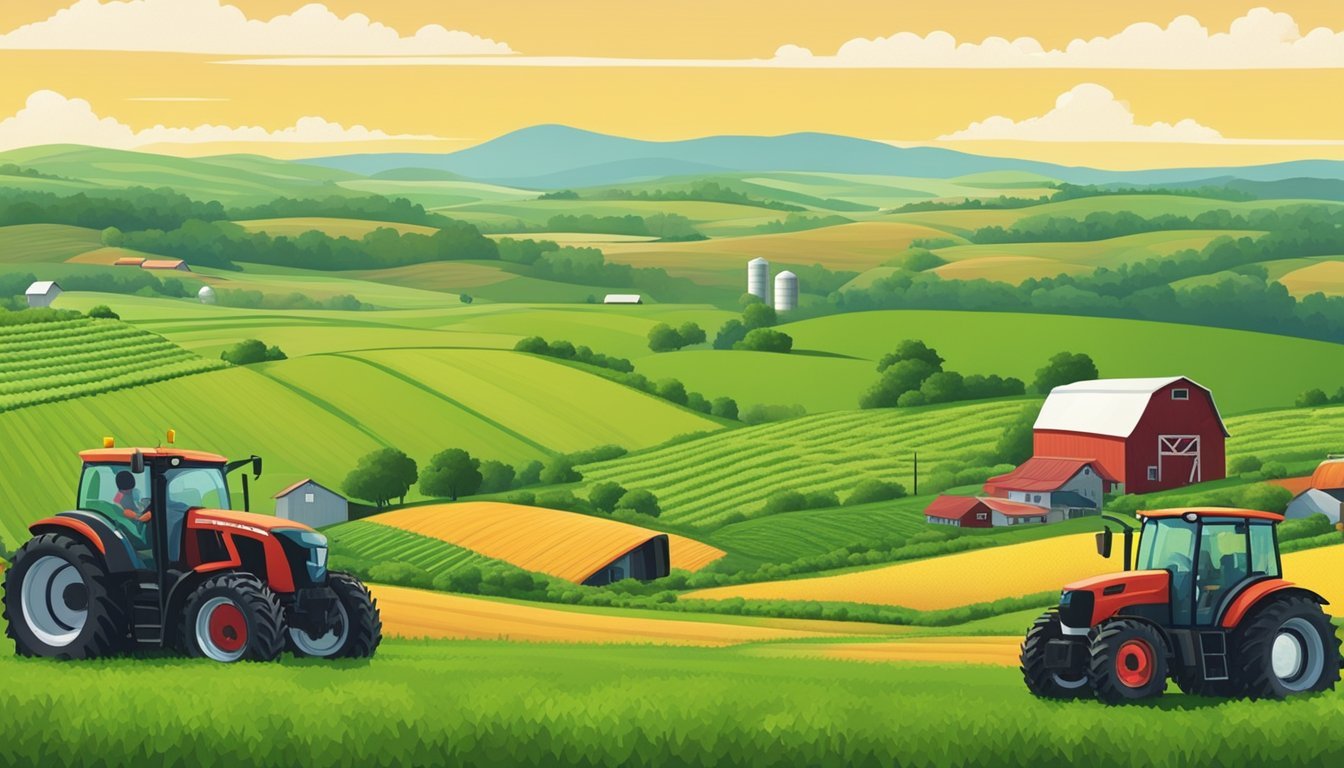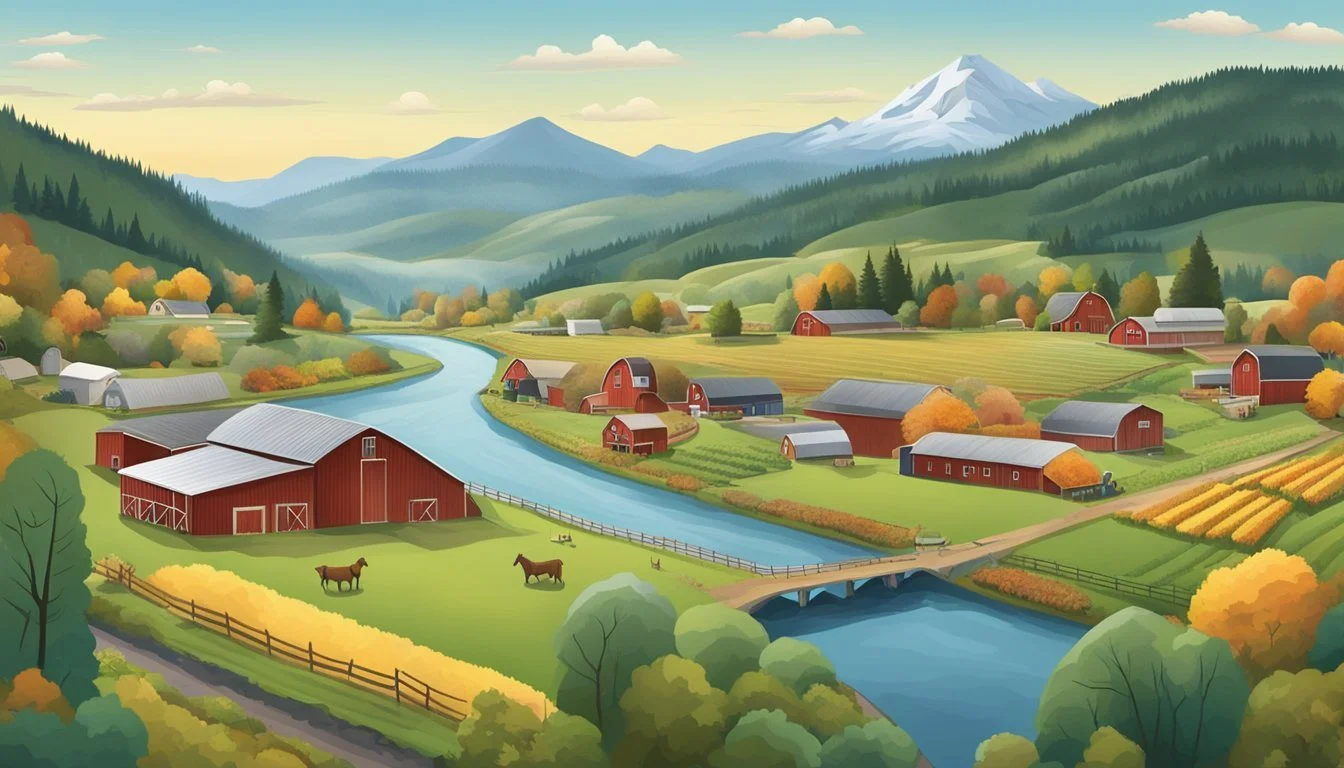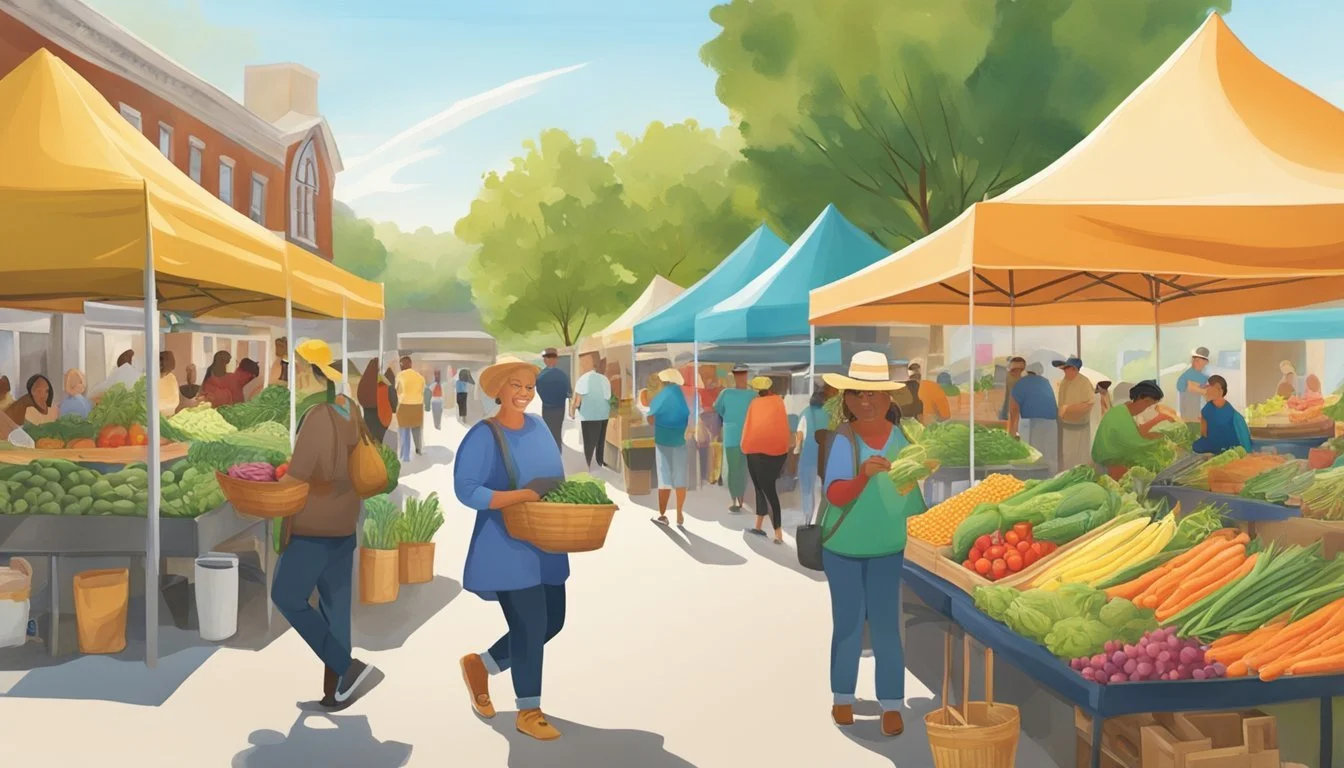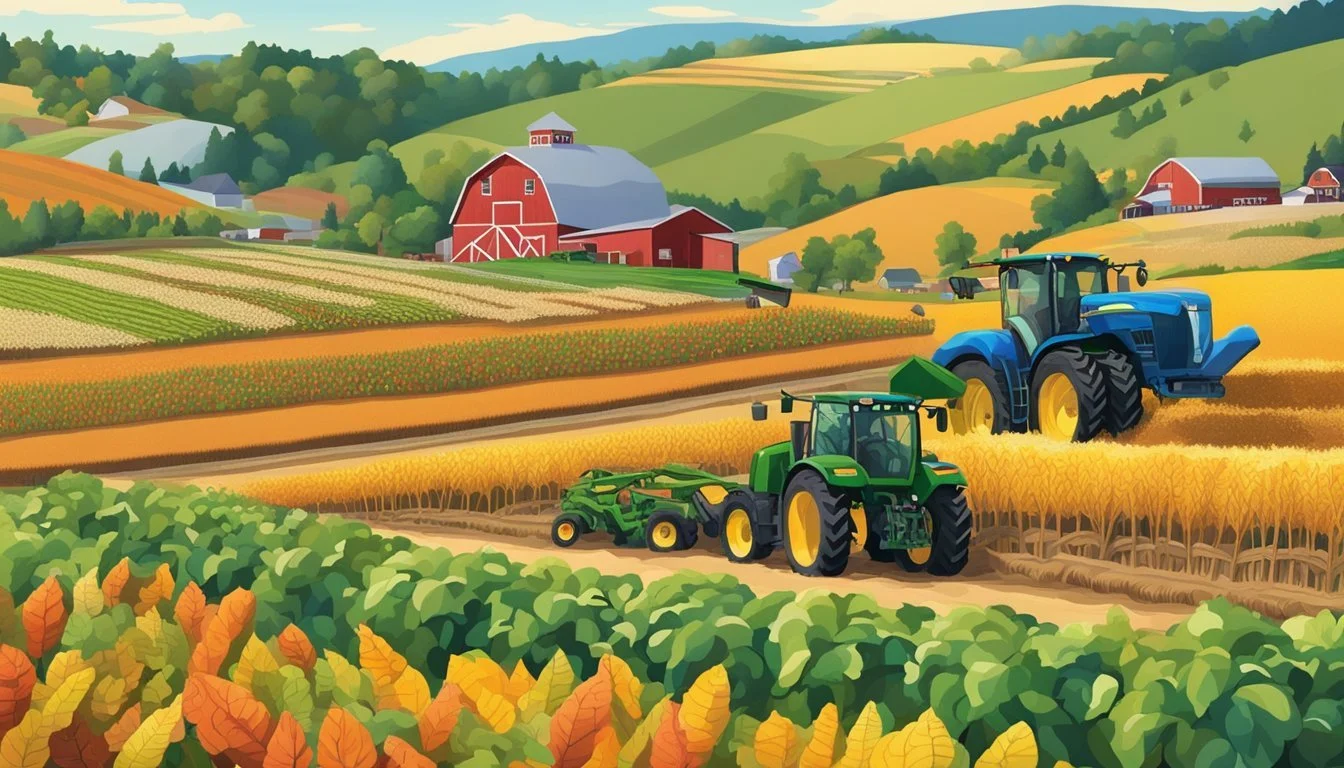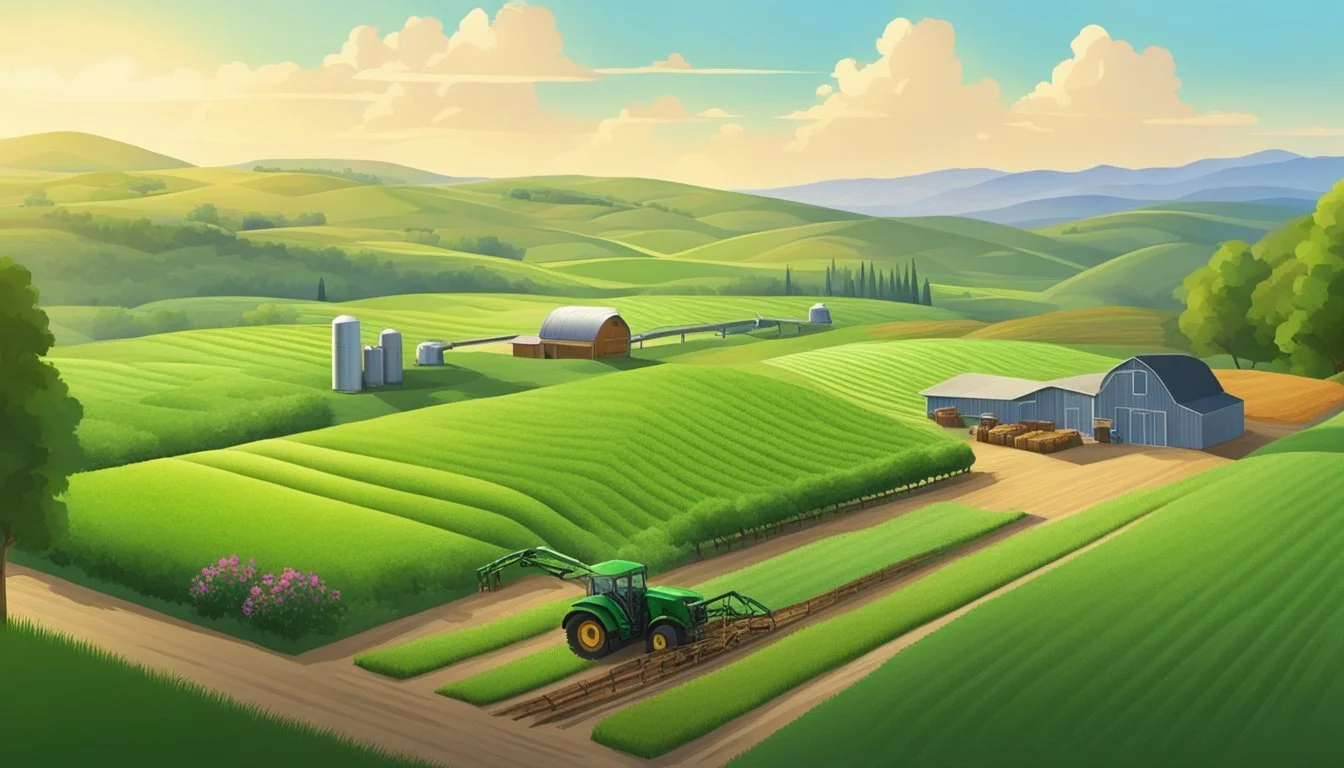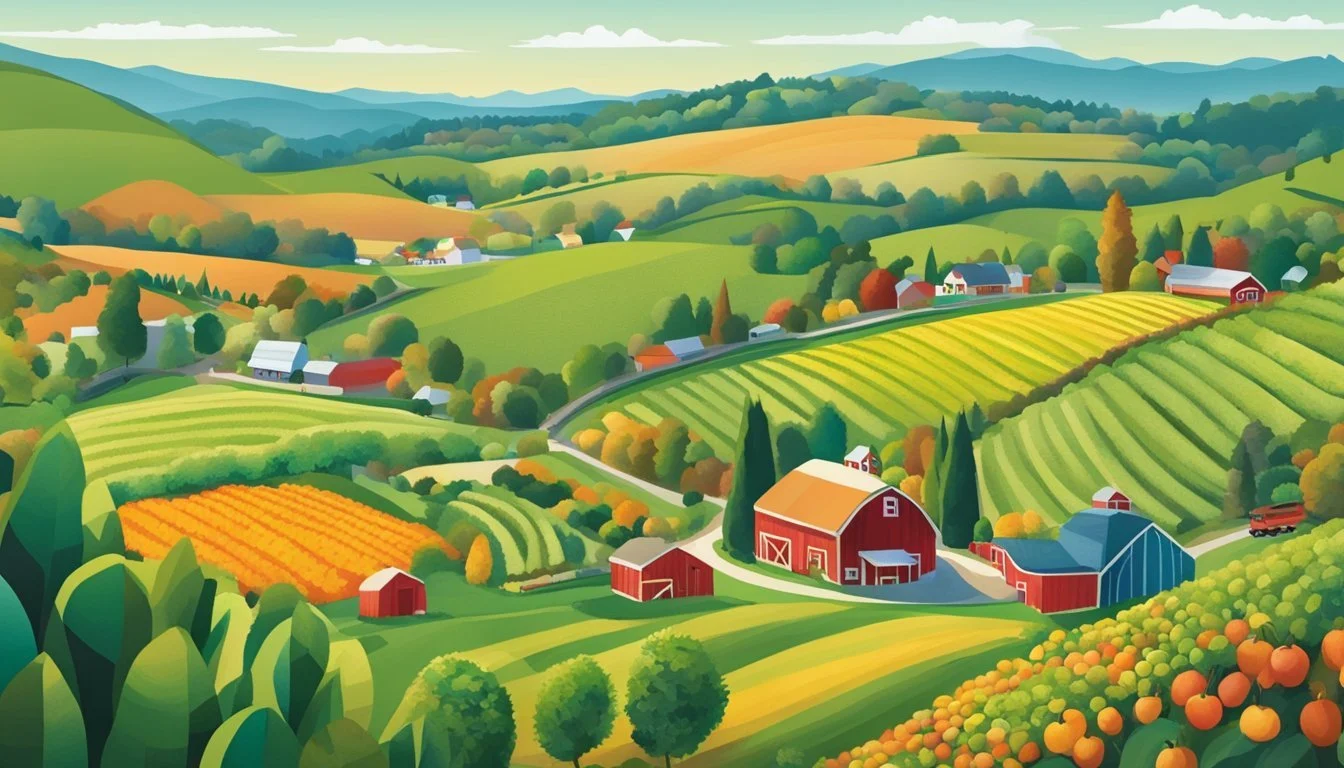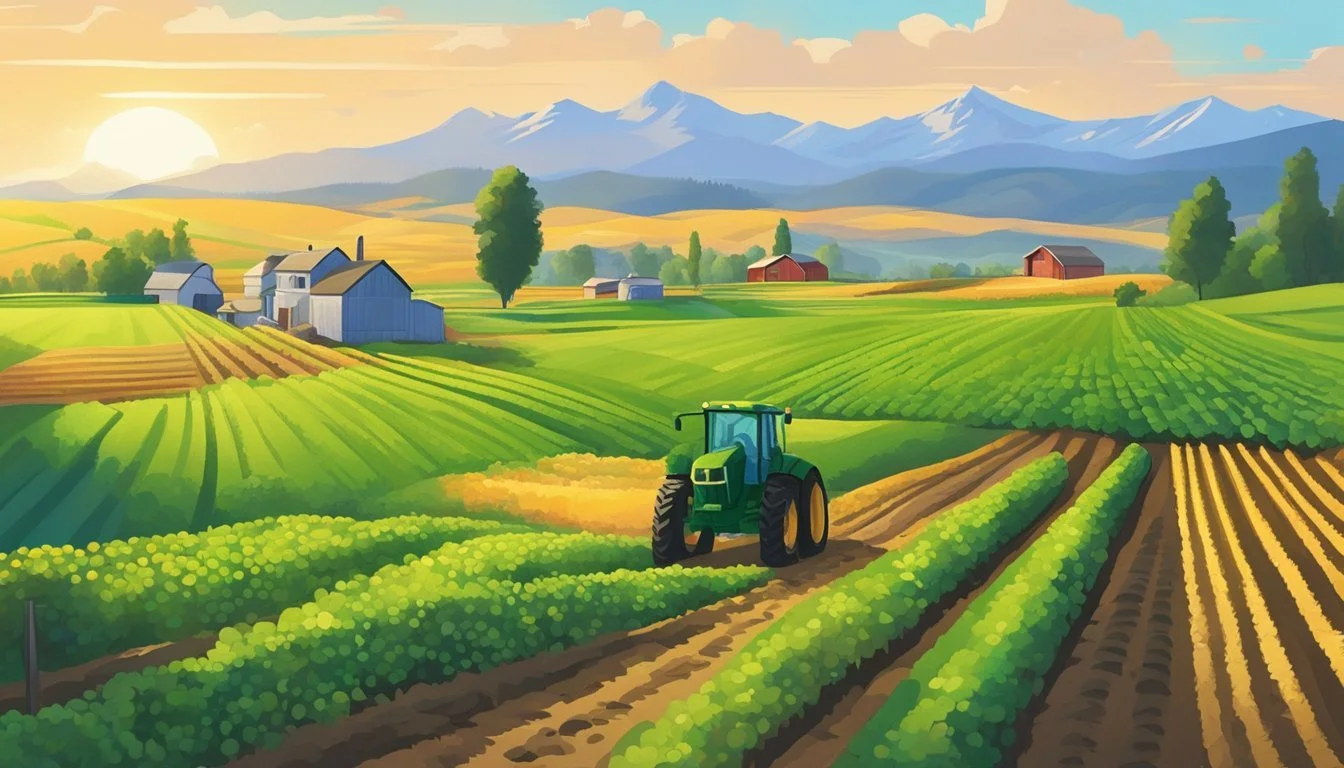Farming Communities in Washington
Strengthening Local Economies and Sustainability
Washington State is home to numerous thriving farming communities, offering a diverse range of agricultural products and fostering strong local economies. These communities not only support the state's agricultural output but also provide unique cultural and social hubs for residents and visitors. With programs like Farm to Farmer, aspiring and current farmers receive the support they need to build capacity and thrive.
From the charming rural town of Lynden near the Canadian border to the expansive farm properties in Island County, Washington's farming communities are as varied as they are plentiful. These areas are known for their rich farmland and dedication to sustainable farming practices, which help maintain the environmental health of the state. Real estate listings show active markets for farms and ranches, with properties offering ideal conditions for both livestock and various crops.
The local agriculture scene is enhanced by community-focused initiatives that connect farmers with essential resources and land opportunities. Lynden, Blaine, and Oak Harbor, among other towns, embody the spirit of Washington's agricultural landscape, blending tradition with innovation to ensure the ongoing prosperity of these vital communities. Washington’s farming communities are key to the state’s continued agricultural success and cultural richness.
Overview of Washington Farming Landscapes
Washington's farming landscapes are diverse, with significant contributions from various regions. King County plays a pivotal role, and organizations like the Washington Farmland Trust work to protect threatened farmland and support sustainable farming.
State's Agricultural Profile
Washington ranks as a leading agricultural state in the U.S. with over 32,000 farms producing a market value of agricultural products exceeding $12.7 billion annually. The state is renowned for its apple production, accounting for 70% of the nation's total. Other top crops include wheat, potatoes, and cherries. These crops showcase Washington's diverse and fertile farmland, second only to California.
Small farms, which make up a large portion of Washington's agricultural economy, face challenges such as aging farmers and decreasing numbers. Despite these hardships, the state's farming communities continue to thrive, contributing significantly to both local economies and national markets.
Role of King County
King County is a vital area for agriculture within Washington. The region is known for its robust small farm population and diverse crop production. It supports a variety of crops, such as berries, vegetables, and nursery products. Urban areas like Seattle offer strong markets for these farm products, promoting local, healthy food consumption.
King County's efforts to maintain agricultural spaces amidst urban development pressures highlight the importance of balancing growth and farmland preservation. Programs encouraging local markets and community-supported agriculture have bolstered the county's farming landscape, ensuring sustainability and economic viability for farmers.
Significance of Washington Farmland Trust
The Washington Farmland Trust plays a crucial role in preserving the state's agricultural land. By protecting threatened farmland, the organization ensures that future generations can continue farming on fertile lands. The Trust's programs include the Farm to Farmer matching initiative, which connects farmers with landowners, fostering sustainable agriculture.
Their efforts extend to supporting community-based organizations and hosting events that raise awareness and funds for farmland protection. By partnering with various stakeholders, the Washington Farmland Trust ensures the continued viability of Washington's agricultural economy and the provision of healthy food to communities.
Ensuring that farmland remains productive and accessible is essential for sustaining the agricultural traditions of Washington state.
Local Communities and Support Structures
Local communities in Washington have developed a robust network of support structures, including farmers' cooperatives, nonprofit partnerships, and community development organizations. These entities play critical roles in supporting the agricultural sector by providing resources, personalized support, and enabling collaboration.
Farmers' Cooperatives and Collectives
Farmers' cooperatives and collectives in Washington are vital in uniting small-scale farmers. By pooling resources, they reduce costs and increase market access. This collaboration helps in purchasing bulk supplies and marketing products collectively, thereby enhancing profitability.
Additionally, cooperatives provide a platform for knowledge sharing. Farmers gain access to best practices, innovative farming techniques, and advice on sustainable agriculture. These cooperatives often serve as a hub for community engagement, fostering social bonds and mutual support among members.
Nonprofit Partnerships
Nonprofit organizations in Washington form vital links between farmers and necessary resources. Entities like Washington Farmland Trust offer personalized support, helping farmers secure and sustain land. They protect farmland, ensuring it remains available for agricultural use, combating the loss of farmland to development.
These nonprofits also aid in securing funding, grants, and technical assistance. They often provide educational programs, workshops, and access to agricultural experts. This support bolsters farmers' capacities, helping new and existing farmers thrive in a competitive market.
Community Development Organizations
Community development organizations play a crucial role in enhancing food security and local economies. By supporting community-based farming models, they ensure direct access to fresh, nutritious food for local residents. These organizations often help establish farmer’s markets, CSA (Community Supported Agriculture) programs, and local food hubs.
Moreover, they create local employment opportunities, contributing to economic stability. Their efforts in eradicating food deserts are particularly significant. By providing infrastructure and support services, these organizations empower communities and promote self-reliance through agriculture.
This comprehensive support system not only sustains farming practices but also strengthens local food systems and communities across Washington.
Framing Agricultural Business
Effective agricultural business management involves understanding the daily life of farm business owners, the dynamics of agricultural markets, and the importance of capacity building for farmers.
The Life of a Farm Business Owner
Farm business owners in Washington must navigate a range of responsibilities. They manage everything from crop cultivation to animal husbandry.
Daily Tasks:
Inventory and supply chain management
Staff management and training
They also must stay updated with regulations concerning labor laws, environmental standards, and food safety. Multi-tasking and long hours are common, often involving family members in the business operations.
Agricultural Market Dynamics
Understanding market dynamics is crucial for the success of any farming business. Farmers deal with fluctuating prices for produce and livestock, often influenced by factors like weather, global markets, and government policies.
Key Market Factors:
Supply and demand fluctuations
Import/export policies
Farmers use this knowledge to forecast demand, set competitive prices, and make informed decisions about planting and harvesting cycles.
Capacity Building for Farmers
Capacity building focuses on enhancing farmers' skills and resources to ensure sustainable operations. The Washington Farmland Trust’s Farm to Farmer program is a prime example, offering personalized support for current and aspiring farmers.
Support Provided:
Access to farmland and resources
Technical training and workshops
Networking with farming cooperatives
Such programs aim to improve farming practices, boost productivity, and create resilient farming communities. Farmers learn about modern farming techniques, financial management, and legal compliance, which are essential for thriving in today’s competitive market.
Sustainable Farming and Environmental Stewardship
Washington farming communities prioritize sustainable practices that support robust environmental stewardship. These communities emphasize organic and regenerative methods, strong stewardship and conservation goals, and sustainable workspaces to protect the environment and promote healthier food systems.
Organic Farming and Regenerative Practices
Washington farmers increasingly adopt organic and regenerative practices. Organic farming avoids synthetic pesticides and fertilizers, focusing instead on natural processes to maintain healthy soil and plants. Techniques such as crop rotation, cover cropping, and composting are common.
Regenerative farming takes it a step further by enhancing soil biodiversity and increasing resilience to climate change. Farmers employ no-till and permaculture methods to reduce soil erosion and promote carbon sequestration. Organizations like the Tilth Alliance support these practices through education, funding, and advocacy to help farmers transition smoothly.
Stewardship and Conservation Goals
Environmental stewardship is critical for maintaining the productivity and viability of farmland. Washington Farmland Trust exemplifies these efforts by supporting the health of conserved farms and encouraging practices that invest in soil, water, and habitat.
Stewardship programs aim to protect farmland from development while ensuring it remains productive. Goals include enhancing biodiversity and fostering ecosystems that contribute to the land's long-term sustainability. Farms like Kristoferson Farm manage their forest areas based on stewardship plans that align with sustainability standards.
Workspace Sustainability and Resources
Sustainable workspaces are integral to the overall effort. Farmers need resources, such as grants and technical assistance, to create and maintain eco-friendly operations. Programs like the Sustainable Farms and Fields Program provide critical support by enhancing carbon sequestration and reducing GHG emissions.
Farm organizations also run initiatives like Farm Walks and podcasts, teaching farmers sustainable practices. The focus on workspace sustainability ensures that farm infrastructure supports the environmental goals set by the community. Financial assistance is available for projects that improve economic viability, social impact, and environmental sustainability, further bolstering these goals.
Cultural Aspects and Community Connections
Farming in Washington State is deeply intertwined with cultural heritage and the diverse linguistic communities that call the area home. This section explores the pivotal role of farming in preserving cultural identity and fostering community ties through shared agricultural practices and common languages.
Farming as Cultural Heritage
In Washington, farming is more than an occupation; it’s a way to honor cultural traditions and ancestral practices. Many families have farmed the same land for generations, preserving heirloom crops and traditional farming methods. These practices serve as a living link to their ancestors, helping to maintain a sense of belonging and cultural continuity.
Washington Farmland Trust supports local initiatives that aim to protect these cultural heritages. By promoting sustainable farming practices, these programs help safeguard the legacy handed down through generations. Access to culturally significant foods fosters community pride and keeps traditions alive, making farming an essential cultural touchstone in the region.
Language and International Communities
Washington's farming communities are characterized by significant linguistic diversity. International farmers and immigrant communities often bring unique agricultural knowledge and practices from their countries of origin. This shared language and experience can help knit together a diverse community through a common agricultural focus.
Incorporating cultural inclusivity in farming practices ensures that non-English speaking communities are respected and understood. Language programs and translation services help to bridge communication gaps, facilitating better collaboration and community building. This inclusive approach promotes a sense of shared purpose and belonging, which is vital for thriving, harmonious farming communities in Washington State.
Diversity in Farming
The farming landscape in Washington is characterized by a rich tapestry of diverse communities. These communities include Black and Indigenous farmers, minority farming collectives, and women in agriculture, all of whom contribute in unique ways to the state's agricultural output.
Black and Indigenous Farmers
Black and Indigenous farmers play a significant role in Washington's agriculture sector. Efforts to support these groups have led to initiatives aimed at increasing land accessibility and providing educational resources. Projects like the Farm to Farmer land matching program help connect farmers with available land, enhancing opportunities for cultivation.
Indigenous farming traditions often incorporate sustainable practices honed over generations. These methods contribute not just to productivity but also to the preservation of cultural heritage. Institutions collaborate to offer training and resources, ensuring these practices thrive while supporting farm-based business models.
Farming Collectives amongst Minority Groups
Farming collectives have become increasingly important among minority groups in Washington. Collectives offer mutual support, shared resources, and collective bargaining power. This model has proven effective in stabilizing income and reducing the risk associated with farming.
Groups like Viva Farms are notable examples, providing infrastructure, training, and market access. These collectives often align with community-based organizations to create supportive environments for minority farmers. Their efforts bolster not only individual farm success but also community resilience and local food systems.
Women in Agriculture
Women in agriculture are a growing demographic in Washington, contributing extensively to both small and large-scale farming operations. Programs directed at empowering women include grants and technical assistance to enhance farm productivity and sustainability.
Women's involvement spans various sectors, from organic farming to vineyard management. Networking events and educational workshops are instrumental in building skills and fostering connections among women farmers. This support helps bridge gaps in resources and knowledge, paving the way for a more inclusive agricultural future.
Agricultural Direct Support Systems
Farmers in Washington benefit from a variety of direct support systems designed to enhance their skills, protect their rights, and ensure their financial stability. These systems involve programs ranging from extension services and training to legal and financial advocacy.
Extension Programs and Training
Extension programs in Washington provide critical educational services to farmers and farmworkers. Universities and agricultural organizations often facilitate these programs. Washington State University (WSU), for example, offers ongoing training sessions, workshops, and seminars.
Training topics cover sustainable farming practices, advanced farming technologies, and business management skills. These programs are aimed at both current farmers and aspiring ones, ensuring that they can adapt to the latest agricultural trends and technologies.
The Washington Farmland Trust helps connect farmers with land opportunities and provides personalized support to build their capacity. Programs such as Farm Walks, coordinated by organizations like Tilth Alliance, offer hands-on experience and real-world insights from experienced farmers, further enriching the educational landscape.
Legal and Financial Advocacy
Agricultural communities benefit significantly from legal and financial advocacy services. Various service providers, including farm organizations and specialized lawyers, offer support in navigating complex agricultural laws and regulations.
Washington Farmland Trust and other similar organizations often provide resources and referrals for legal matters involving land use, labor laws, and environmental compliance. Realtors familiar with agricultural properties assist farmers in securing appropriate land.
Financial institutions and advisors play a crucial role by offering programs for loans, grants, and financial planning. These services help farmers access the necessary capital for operations and expansion. Additionally, organizations provide advocacy and aid for handling financial distress, helping farmers navigate challenging economic circumstances with greater confidence.
Local Harvest and Farm-to-Table
Washington's farming communities thrive on sustainable agricultural practices, yielding fresh and organic produce. The Farm-to-Table movement connects these harvests directly to consumers, ensuring quality and flavor in every bite.
Seasonal Harvest Economics
Seasonal harvests in Washington greatly influence the local economy. Small family farms, such as those in the Snoqualmie River Valley, produce an array of vegetables, fruits, and berries. Strawberries, raspberries, blueberries, and blackberries are particularly prominent. Local farmers utilize both traditional and greenhouse farming methods, adapting to seasonal changes.
Farmers markets, such as those organized by PCC Community Markets and Tilth Alliance, provide platforms for farmers to sell their produce directly. This direct-selling approach benefits both farmers and consumers by cutting out middlemen and ensuring fair prices for seasonal, fresh produce.
Local Food Movements
Local food movements in Washington emphasize organic food production and sustainability. Initiatives like the Farm-to-Table Trails guide consumers to markets, farms, and eateries that prioritize fresh, locally-sourced ingredients. These trails cover regions from the Skagit Valley to the Salish Sea, showcasing a wide range of local goods.
Restaurants such as The Herbfarm in Woodinville exemplify the farm-to-table ethos, offering seasonal menus that reflect the bounty of Washington's farms. These movements foster a closer connection between consumers and producers, promoting mindful eating and support for sustainable farming practices.
Farm stays and tours also help educate the public about the importance of organic farming and the future for farming communities, creating a sustained interest in the local harvest culture.
Challenges and Opportunities for Washington Farmers
Washington farmers face a mix of significant challenges and promising opportunities. Efforts in economic development, land access, and innovative farming techniques highlight pathways to success and sustainability for farming communities across the state.
Economic Development Initiatives
Economic development initiatives in Washington aim to support farmers through various programs and resources. Gig Harbor and Tacoma are notable for their local markets and community-supported agriculture.
Small farmers often benefit from grants and subsidies designed to bolster agricultural operations. These include funding for infrastructure improvements and marketing initiatives.
Efforts to enhance economic resilience also focus on diversifying crops and products. This reduces dependence on single commodities, offering farmers a buffer against market fluctuations.
Land Access and Preservation Efforts
Land access remains a significant barrier due to high costs and development pressures. Organizations like the Washington Farmland Trust are crucial in mitigating these issues.
Programs such as Farm to Farmer help connect farmers with available land and resources. In regions like Snohomish and Pierce, these initiatives are vital for maintaining agricultural land.
Preservation efforts also emphasize protecting farmland from industrial and residential development. This is particularly important for maintaining the agricultural identity and economic viability of rural areas.
Innovation in Farming Techniques
Innovation in farming techniques provides Washington farmers with tools to increase efficiency and sustainability. Capital investments in technology, such as precision agriculture, optimize resource use and crop yields.
Efforts to introduce sustainable practices, like organic farming and reduced chemical usage, are gaining traction. These methods not only benefit the environment but also meet increasing consumer demand for eco-friendly products.
Collaboration among universities, research institutions, and farmers fosters the development and implementation of innovative techniques. This not only improves productivity but also ensures that farming remains viable for future generations.

